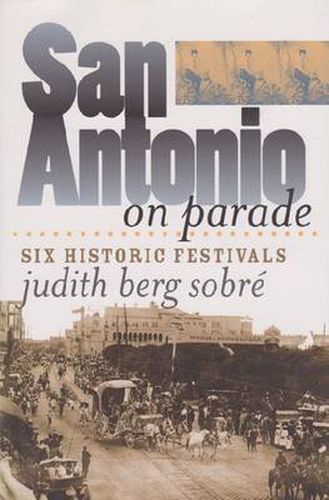Readings Newsletter
Become a Readings Member to make your shopping experience even easier.
Sign in or sign up for free!
You’re not far away from qualifying for FREE standard shipping within Australia
You’ve qualified for FREE standard shipping within Australia
The cart is loading…






Cities, like people, may be best known by the way they party. For nearly a century and a half. San Antonio has partied well. In this look at late-nineteenth-century festivals in San Antonio, Judith Berg Sobre brings an art historian’s sensibility to accounts of the pageantry, parades, and festive events that typified a city welcoming settlers into a community that valued their individuality even while it taught them a new identity. Six historic festivals provide windows into the culture of this polyglot city the Fourth of July, Juneteenth, Diez y Sets Columbus Day, the German Volksfests, and the Battle of the Flowers. The festivals allow their sponsors to showcase the language, foods, costumes, and dances of their homeland while still identifying themselves as patriotic supporters of their new country. Sobre describes the festivals vividly, and the result is a delightful picture of a city and an era at play - a city and an era that would soon find less reason to play and less ability to nurture and celebrate diversity.
$9.00 standard shipping within Australia
FREE standard shipping within Australia for orders over $100.00
Express & International shipping calculated at checkout
Cities, like people, may be best known by the way they party. For nearly a century and a half. San Antonio has partied well. In this look at late-nineteenth-century festivals in San Antonio, Judith Berg Sobre brings an art historian’s sensibility to accounts of the pageantry, parades, and festive events that typified a city welcoming settlers into a community that valued their individuality even while it taught them a new identity. Six historic festivals provide windows into the culture of this polyglot city the Fourth of July, Juneteenth, Diez y Sets Columbus Day, the German Volksfests, and the Battle of the Flowers. The festivals allow their sponsors to showcase the language, foods, costumes, and dances of their homeland while still identifying themselves as patriotic supporters of their new country. Sobre describes the festivals vividly, and the result is a delightful picture of a city and an era at play - a city and an era that would soon find less reason to play and less ability to nurture and celebrate diversity.